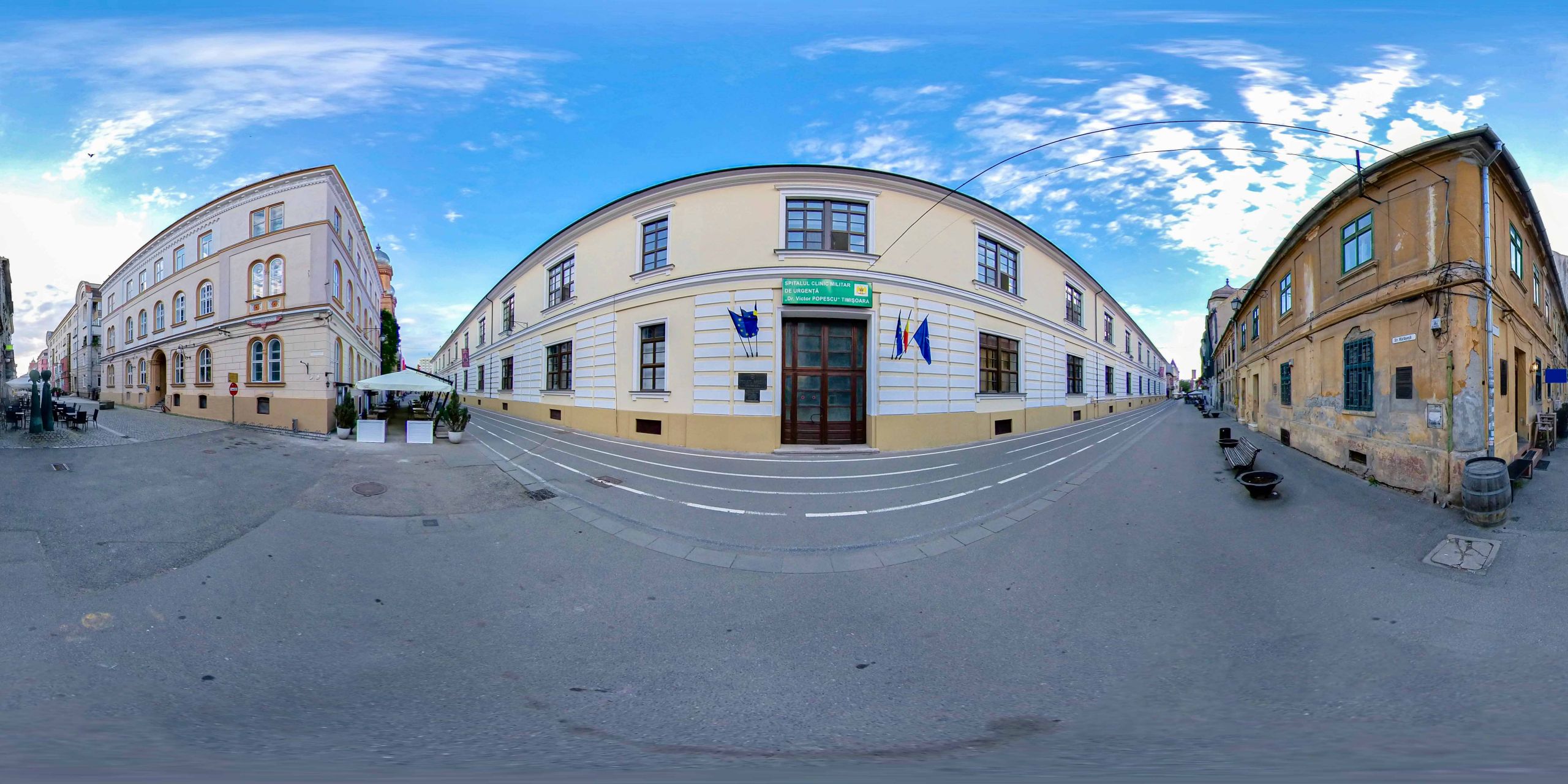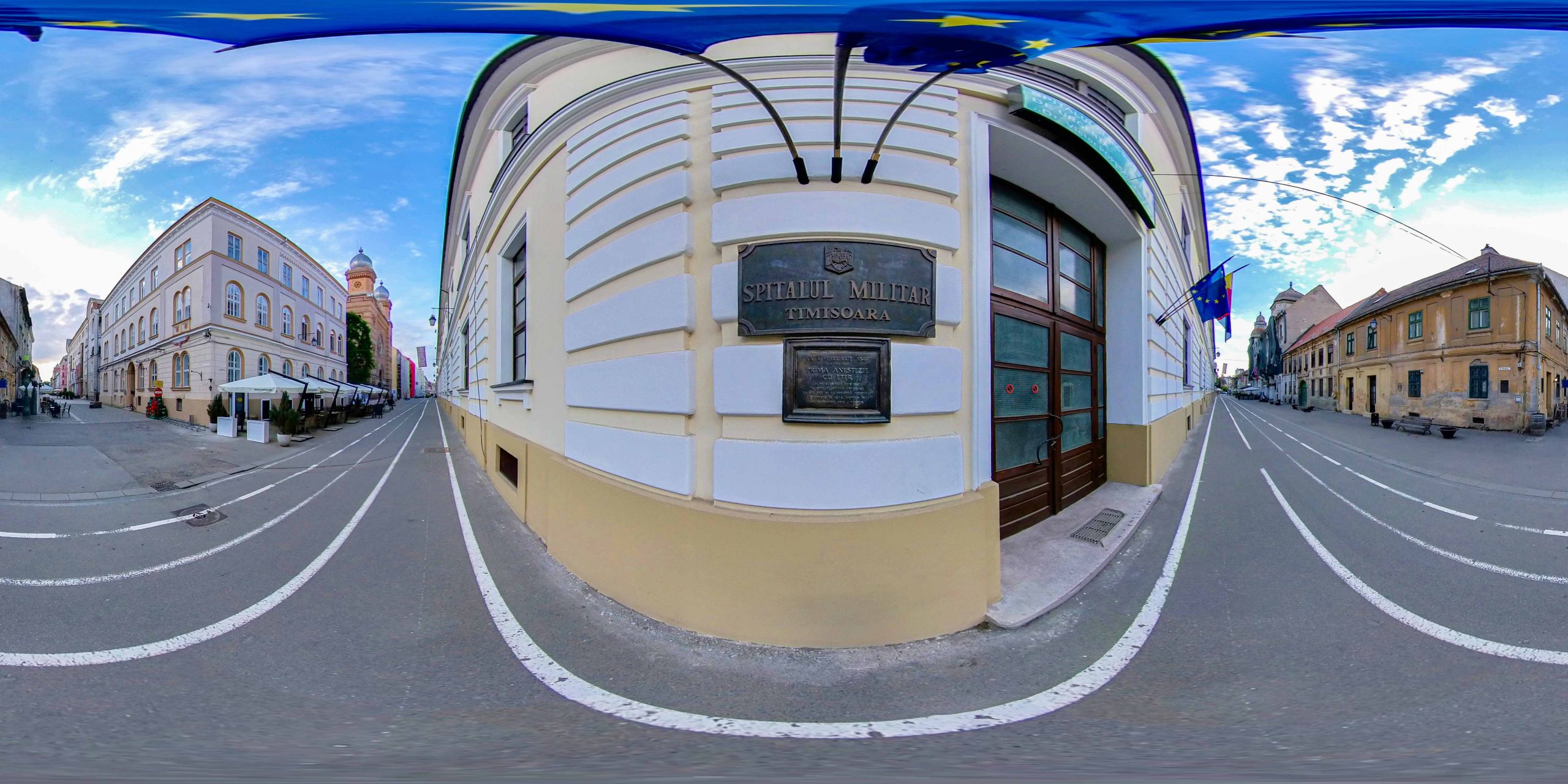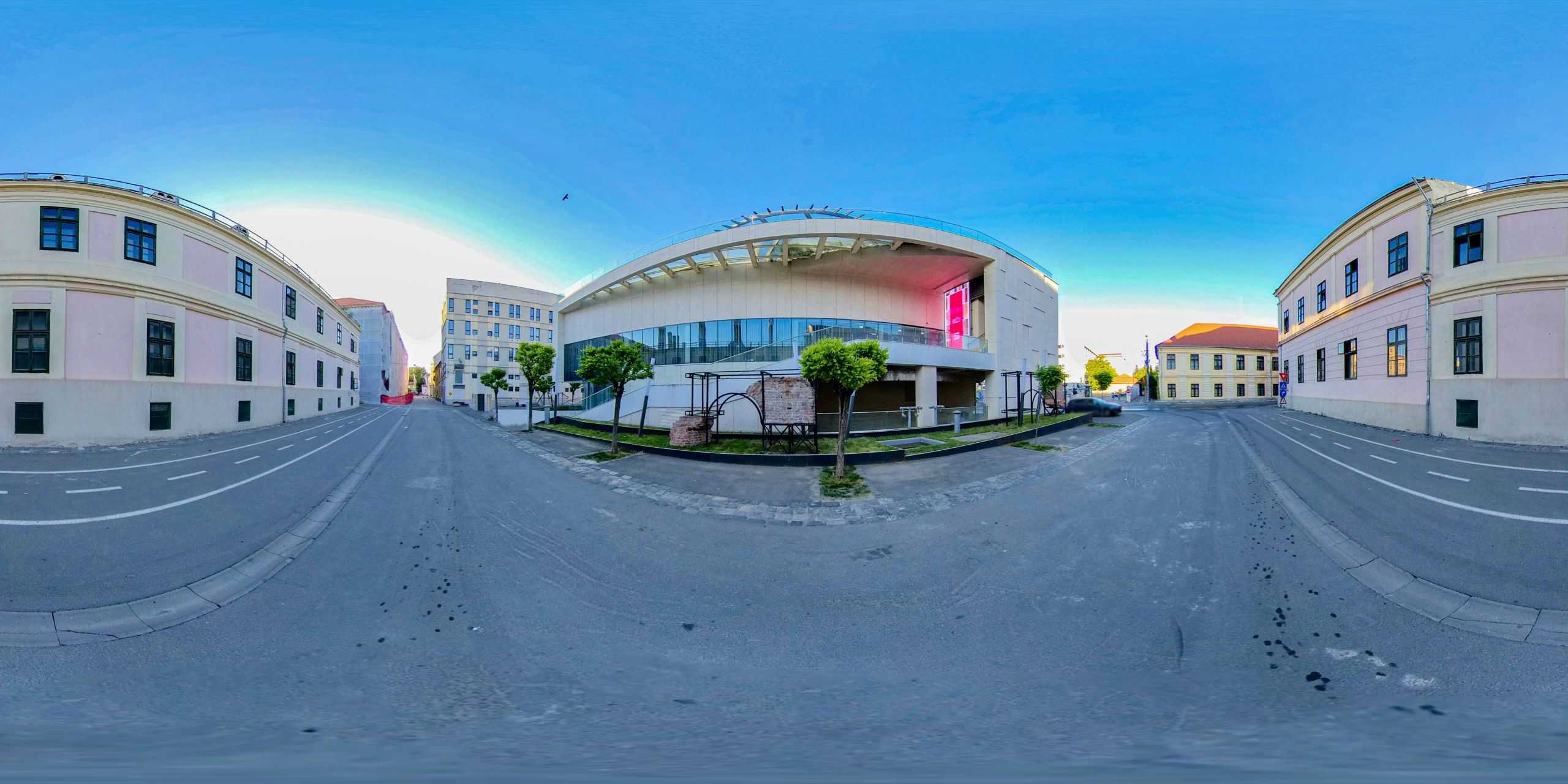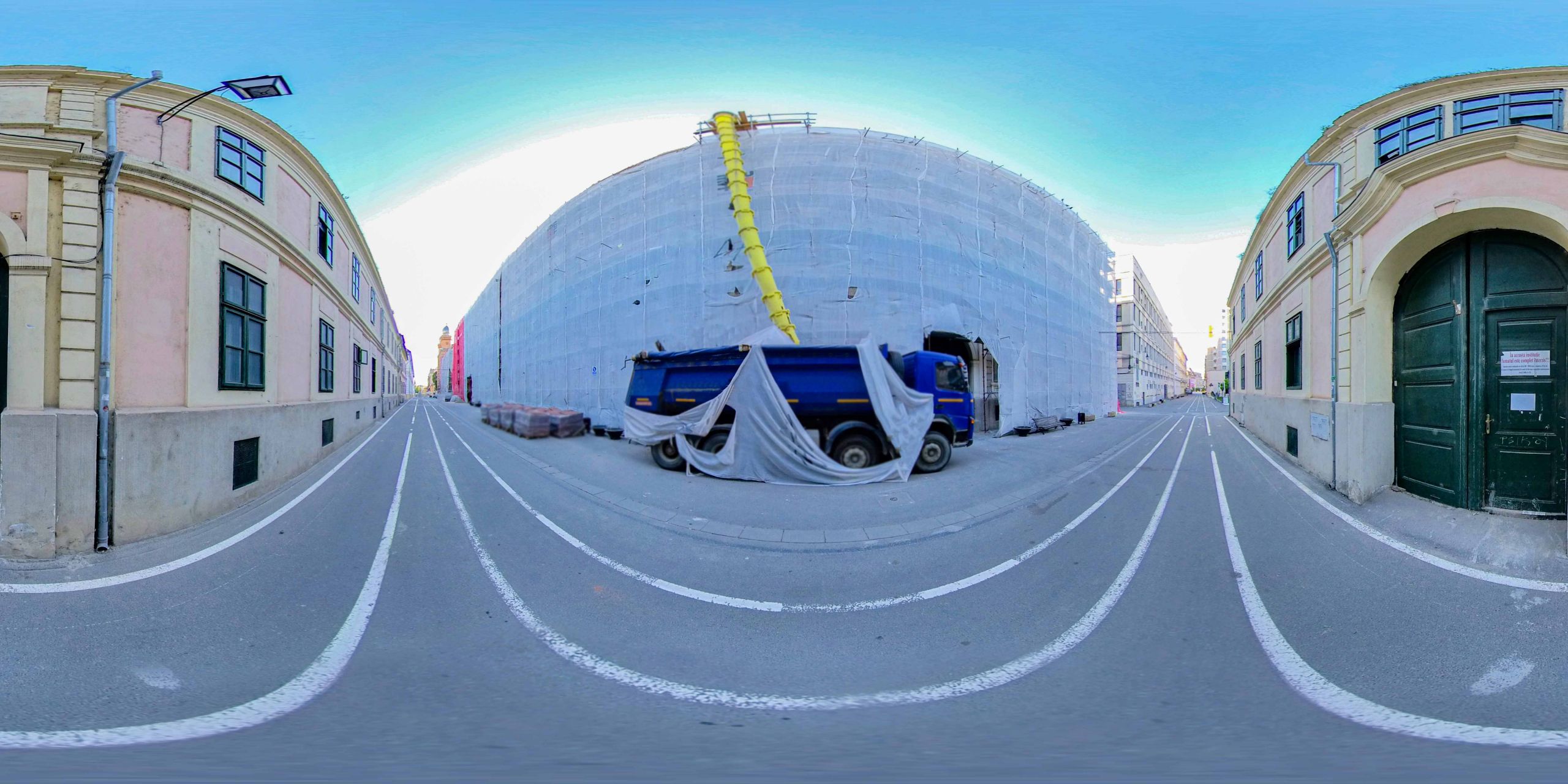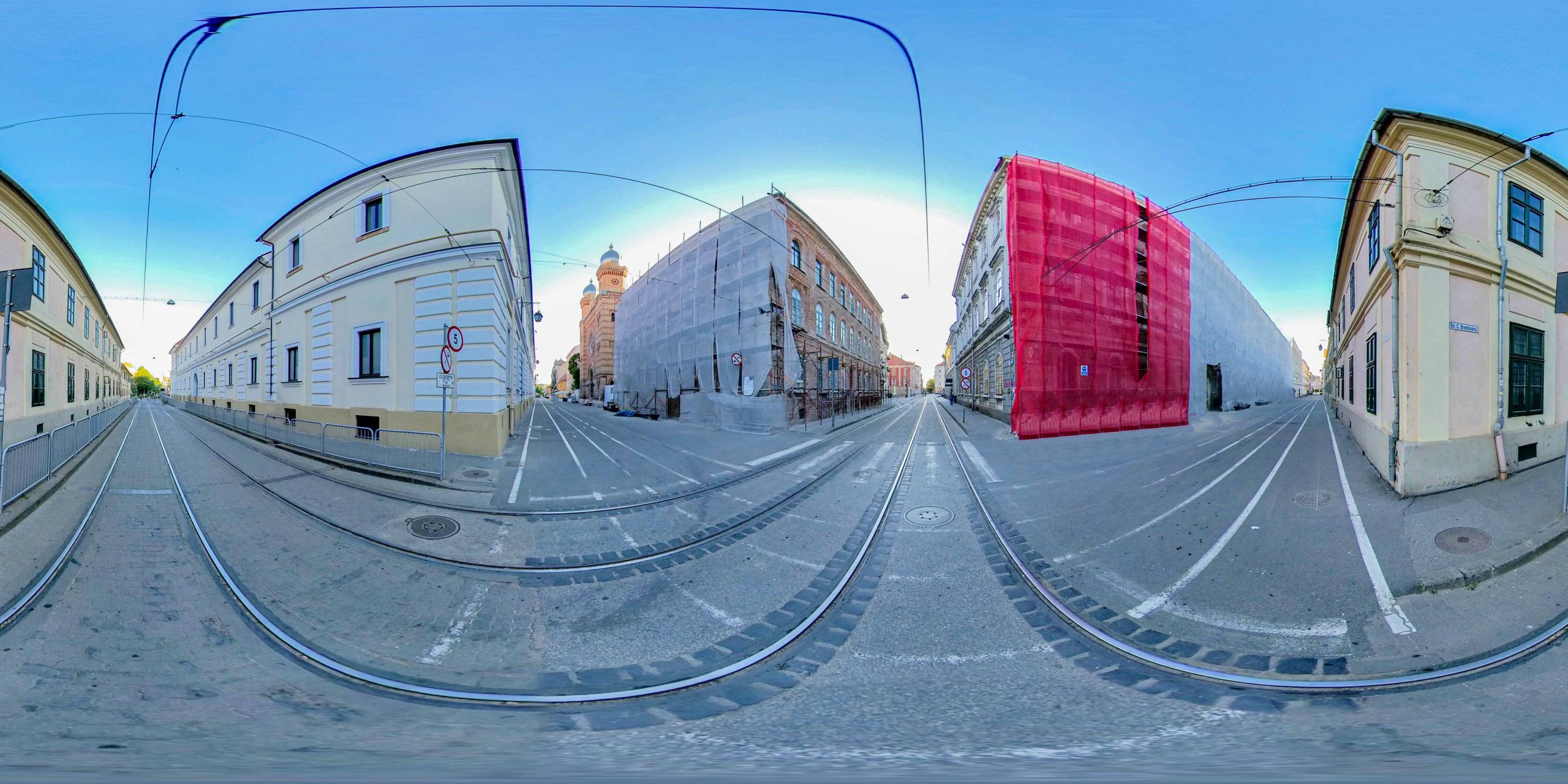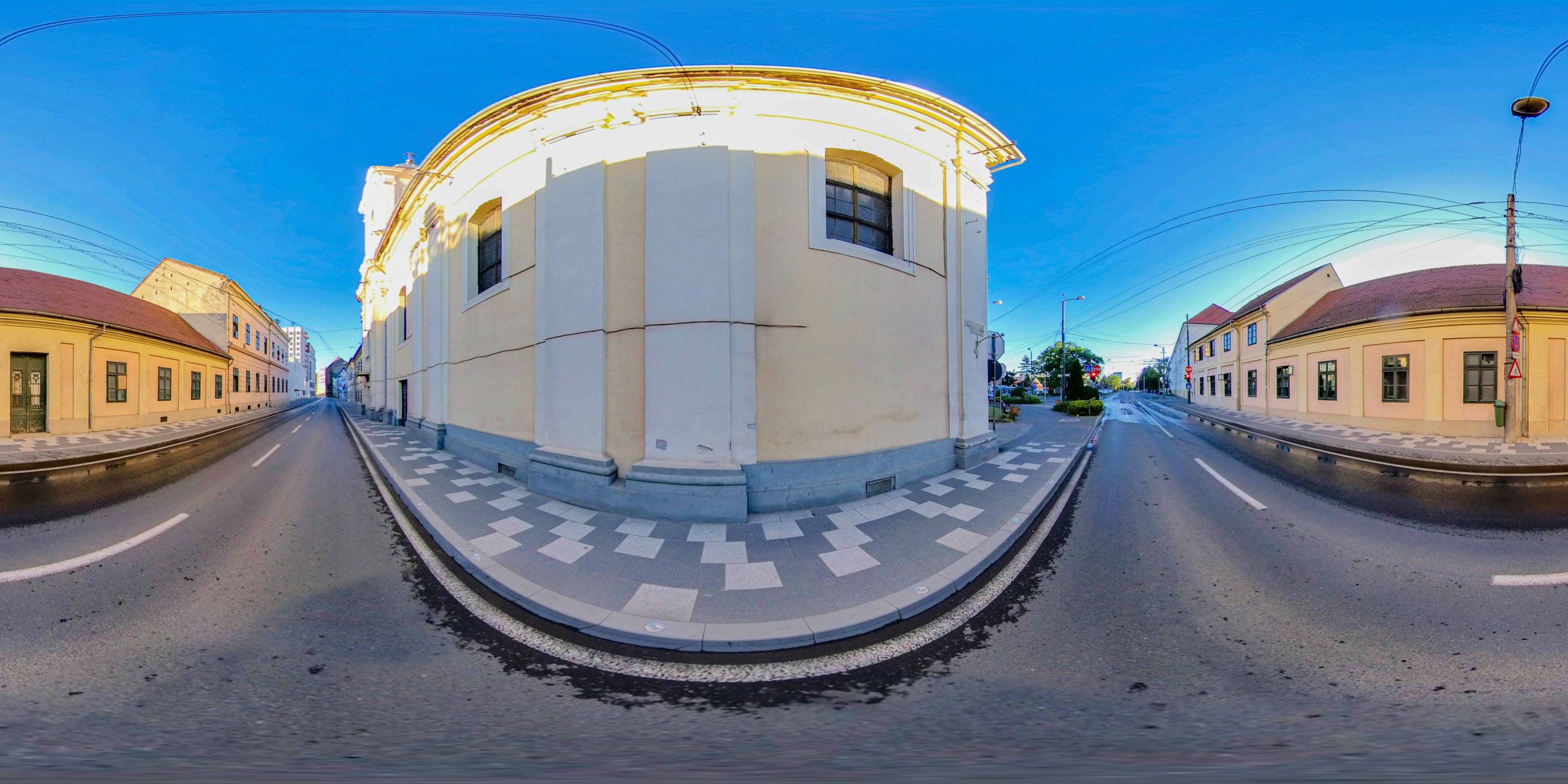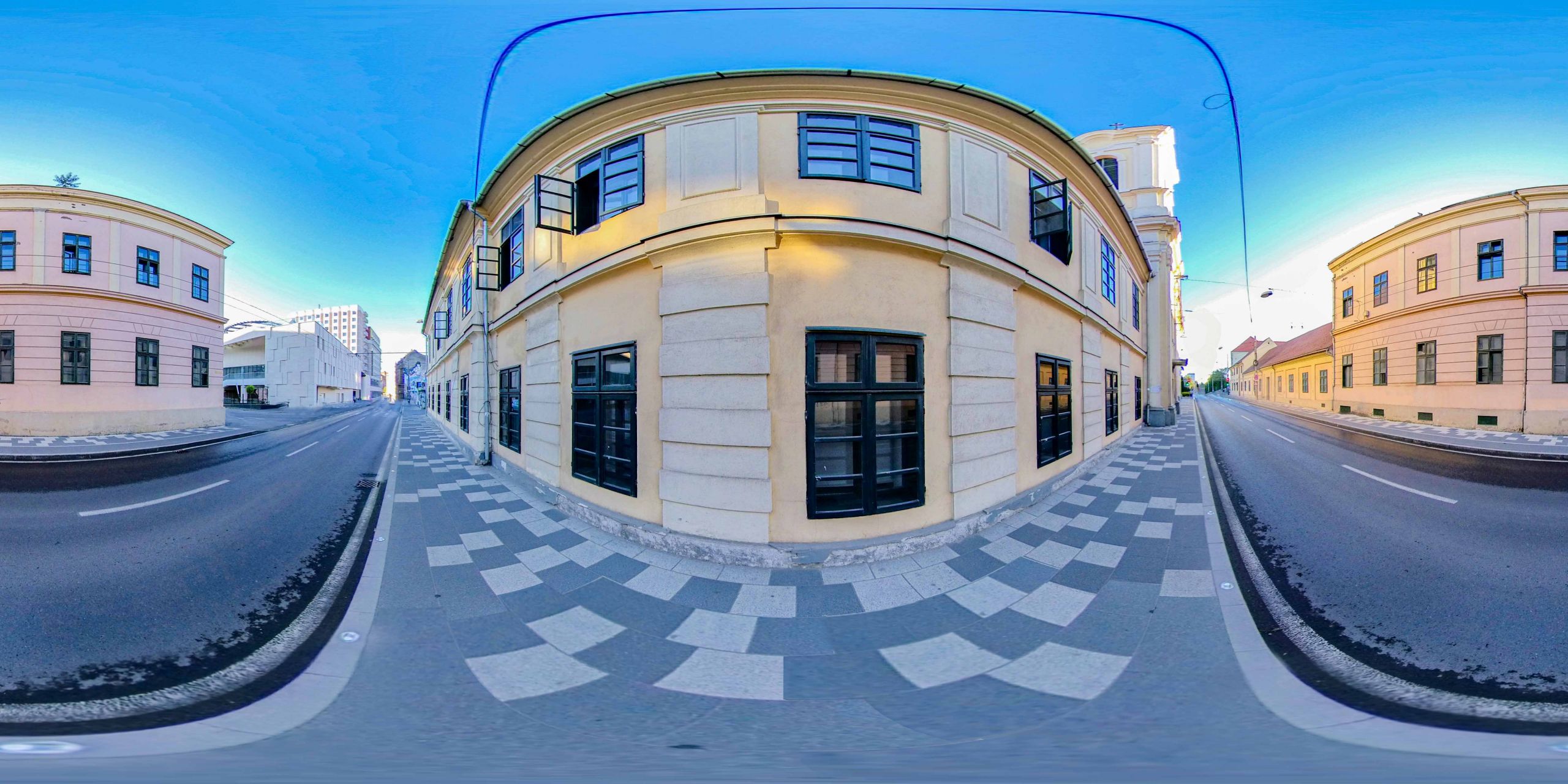The Municipal Emergency Clinical Hospital, originally called the Bürgerspital / Civil Hospital, was built between 1744 and 1745 in the provincial Baroque style. The military hospital was built on one level between 1764-1766 and multi-storey in 1817-1818.
Listen to the audio version.
The municipal emergency emergency (Str. Mărășești 3 - 5, Str. Sf. Ioan), originally called Bürgerspital / Civil Hospital, was built between 1744 and 1745, the wing of the building with the first floor facing Mărășești Street being finished in 1757, in the provincial baroque style. During the siege of the fortress by the Hungarian revolutionaries in 1849, the hospital was bombed and rebuilt in the mid-19th century. After World War II the building was used as the University Clinic of Dermato-Venerology until 2015.
The military hospital was built on one level between 1764-1766 and in 1817-1818 it became a multi-story hospital. The building suffered during the bombings of the Hungarian revolution in 1849, being renovated in 1894. The military hospital has three courtyards, with facades on four streets: Brediceanu, Gheorghe Dima, Gheorghe Lazăr, and Marasesti.
Bibliography:
Mihai Opriș, Mihai Botescu - Historic architecture in Timișoara Tempus Publishing House, Timisoara, 2014
Josef Geml, The old Timișoara in the last half of the century 1870-1920, Cosmopolitan Art Publishing House, Timișoara, 2016.
Military Hospital and former Civilian Hospital
Listen to the audio version.
Robert Șerban
at the entrance of the military hospital
whips the NATO flag
you look at it
and you heal
from fear
June 2022
“And not far from here, the hospital street began. Long, smelling of cetrimide and iodoform. All the hospitals – adult’s, military, children’s, women’s, dermatology and venereal diseases, even those for contagious diseases - were all lined up one after the other, in dull, damp buildings, with walls covered in mold. And at the end, in the last building, smaller and more isolated from the others - the morgue. And also in the city center, right between the sumptuous palace housing the National Bank and the courthouse, stood the prison. Several times a day, groups of prisoners in striped uniforms would pass through the huge, ugly wooden gate, accompanied by guards with dumb faces, like sleepy beasts.” (Radu Ciobanu, Twilight, București, Eminescu Publishing House, 1971, p. 16)
Lost in the ruins
by Vora Priyanka Maria, 7th grade
Secondary School no. 24 Timișoara
Little Henry ran through the damp streets of Timișoara, tears streaming down his velvety cheeks. He couldn't lose his temper, not now, when every second counted. Sirens blared near the cathedral, announcing the next Ottoman attack. The weather was against him: lightning streaked across the sky, and the rain poured down, pelting the roofs of houses.
In the quiet, deserted street there was not a sound of a man to be heard, all were hiding in their houses, and the army was ready for any attack. Henry, his heart beating madly, ran desperately for home. He was in a hurry, and the Ottomans were fast approaching the walls of Timișoara. A loud noise shattered the silence - a bomb had exploded near him. Would he survive? he asked himself as he ran through the puddles on Calea Circumvalațiunii, determined not to look back.
With tired legs and a trembling body, Henry kept running, wishing with all his heart to get home and see his sister, perhaps for the last time. Finally, he had arrived. Without hesitation, he jumped into the arms of Lila, his little sister. Their embrace was warm, making him forget, for a moment, the threat outside. Together, they felt strong, believing that as long as they were near each other, no danger could keep them apart.
He sat for a while in his sister's velvety arms, then stood up and gazed coldly into the mirror. From the look in his eyes you could see that he hated everything he saw in that piece of glass set against the burgundy wall of the house. He could not accept himself, let alone forgive himself for what he had done four years ago. Looking in the mirror, he saw a cold, frozen soul, hating himself. And something inside him wouldn't let him accept himself.
Just then a loud and violent sound was heard near his house. Henry looked out of the window with his heart pounding and his fingers clenched in terror and saw the surrounding buildings exploding one by one, engulfed in a dense cloud of smoke. Without another second thought, he grabbed Lilia by the hand and ran out of the house, taking all the memories of his childhood with him. He felt torn to leave his home on Calea Aradului, but he had no choice. Timisoara had become a city lost in ruins, its citadel shattered in the dust of the bombing.
But in his innocent child's mind were the helpless faces of Timisoara's inhabitants. He was sorry he couldn't help them, couldn't help his city when it needed him most. But what could a poor child who was trying to protect his sister from the hardships that the people of Timișoara were enduring? He took Lilia and hid in the ruins of his own house. He hoped that soon it would all stop and he and his sister could live a happier life, but he was soon awakened to reality when another powerful bomb hit Calea Torontalului. Eyes clouded, teeth clenched and heart pounding, Henry collapsed on his sister's shoulder. Was this how his story was to end? Would he ever wake up again? the boy wondered with one last sigh and one last tear.
All this Henry had experienced at just eight years old. Though his story could break any heart, he survived. Sixty years had passed since the Ottoman invasion, and Timisoara, with restored powers, had risen more beautiful than ever. The opera house had been rebuilt with splendid stained-glass windows, and lively, brightly colored buildings had sprung up in place of the ruined houses, giving the city a fresh air. The old, fragile fortress had been demolished and the city had spread out over the neighboring plain, reborn and strengthened. Nature had made its magical mark on the city's parks, where children were carefully planting trees on the war-damaged sites, and people had found peace. Timisoara was healing and the city, through care and love, was once again a place of hope and life.
Meanwhile, Henry became the grandfather of two industrious and responsible granddaughters. He was happy to see the city blossoming under people's attention, and the painful memories remained just shadows of the past. He knew that Timisoara would have a bright future and that all those hard times were left behind a flower that refused to wither.
